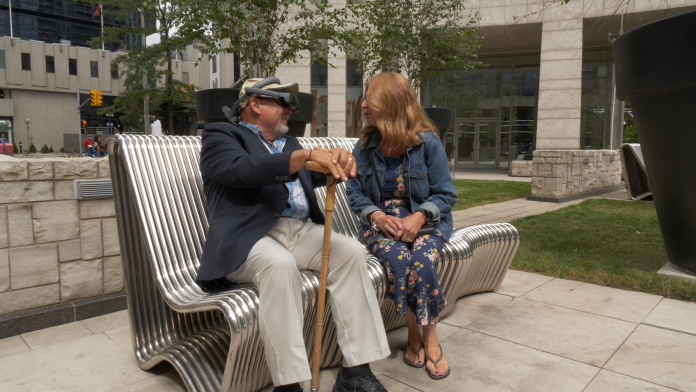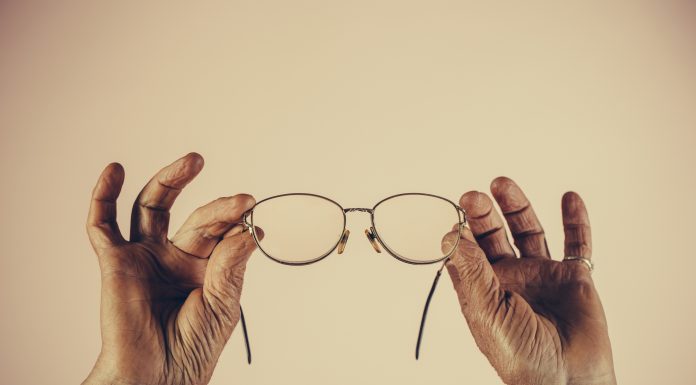Social isolation and loneliness became a universal commonality when the COVID-19 pandemic took over the world. Everyone secluded themselves for the safety of one another and with that came feelings of loneliness and disconnect from the outside world. Although social isolation was a rapidly growing problem for many years before the pandemic, populations are experiencing its heightened long-term impact now. In the spring of 2023, the US Surgeon General declared isolation as a new public health crisis. According to scientists, isolation can be as detrimental to one’s health as smoking, and a complex tangle of comorbidities – ranging from depression and dementia to diabetes – can increase the likelihood of premature death.
It’s a societal imperative that we address this together. Of course, various technologies are rapidly taking shape to help overcome this epidemic.
Virtual Reality
Contrary to popular belief, virtual reality is not exclusive to a younger audience. It is one technology proving to be very effective in helping seniors overcome social isolation through the shared experiences they have in the headsets. Many aging adults spend their time in communities, hospice care or nursing homes separated from the world around them.
The US Surgeon General’s research showed that social isolation like this can be as detrimental to one’s health as smoking 15 cigarettes per day. As a solution, VR can positively impact the aging population with cognitive stimulation, relationship building tools, and even physical exercise. A CDC study on older adults shows that even moderate physical activity has tremendous benefits ranging from decreased risk of falls to improved cognitive function, better mental health, and a reduction in the risk of dying from coronary heart disease. The trick is: how do you make it fun?
Rendever’s virtual reality platform empowers new human connection through magical shared experiences. Users can check off bucket list items, revisit meaningful places of their past, stay engaged with family members, take their physical exercise to the next level, and more. Connection, relationships, and experiences are some of the most important influences for healthy life, especially as you age. As the aging industry continues to evolve, VR’s power is being used to deliver meaningful points of connection that put an end to the rising epidemic of social isolation afflicting this growing demographic.
Digital Reading
Reading has been proven to play an important part in improving one’s mental health. According to a 2009 study by the University of Sussex, reading can reduce stress by up to 68% within six minutes. Although some use reading as a form of escapism, others find community in it. Public libraries across the country utilize free digital book clubs with the help of digital library apps like Libby to provide entertainment for families and friends to read, reflect and discuss together.
While books in a variety of subjects provide a healthy escape for their readers, they can act as resources for any self-help journey. As loneliness and isolation creep in, a plethora of mental health-focused self-help books and audiobooks about battles with depression can help combat these feelings and provide empathy and guidance. An explosion of digital reading material over the past two decades has made it easier and quicker to access free public library resources, especially for those who cannot regularly visit their local library due to old age or illness.
Vision Loss & Isolation
Senior Gary Foster lives with macular degeneration. A sudden loss of central vision over a decade ago prevented him from reading people’s facial expressions and caused him to withdraw socially from his loved ones. As a macular degeneration patient, Gary was told there was nothing they could do for his sight loss. The news took a significant toll on his mental health and cost him his employment.
In 2021, the CDC reported that 1 in 4 adults with vision loss said high levels of anxiety and depression, and young people with vision loss were exceedingly more likely to suffer from severe anxiety and depression. Many people of all ages who have lost their sight report a lack of interest in hobbies, feeling worthless and restless, and having difficulty concentrating on tasks.
Significant achievements within the assistive medical technology space over the past few decades have made it possible for those suffering from low vision to regain their independence and see their families and friends once more. Canadian tech company eSight provides hands-free smart glasses for those suffering from over 20 different eye conditions.
By utilizing small high-speed, high-definition cameras to capture everything the wearer is looking at, the eSight 4 presents that footage on two near-to-eye screens in real time. Now, Foster uses an eSight device and has been able to see his loved ones’ facial expressions, revisit his hobbies and have gainful employment once more, significantly improving his mental health and that of his family members.
Interestingly, people living with severe macular degeneration and glaucoma have benefited immensely from Rendever, too. There are a growing number of stories of people who are legally blind seeing clearly for the first time through virtual reality. It is likely that the same near-to-eye screen positioning is working its power, and the results can be magical in helping people overcome sensory loss and lean into new immersive experiences with friends and family.
So what’s next? Even with a newly declared public health crisis, we need to work together to shift society’s understanding of why social isolation is so dangerous – especially for older adults. Tools and solutions like Rendever, Libby and eSight are all amazing tools and the impact is phenomenal, and often quite heart-warming. There’s a vast amount of work left to do to make sure the epidemic of isolation is taken seriously by institutions like payers and government agencies who are able to create seismic shifts and accelerate our ability to change the landscape of social mental health.
























